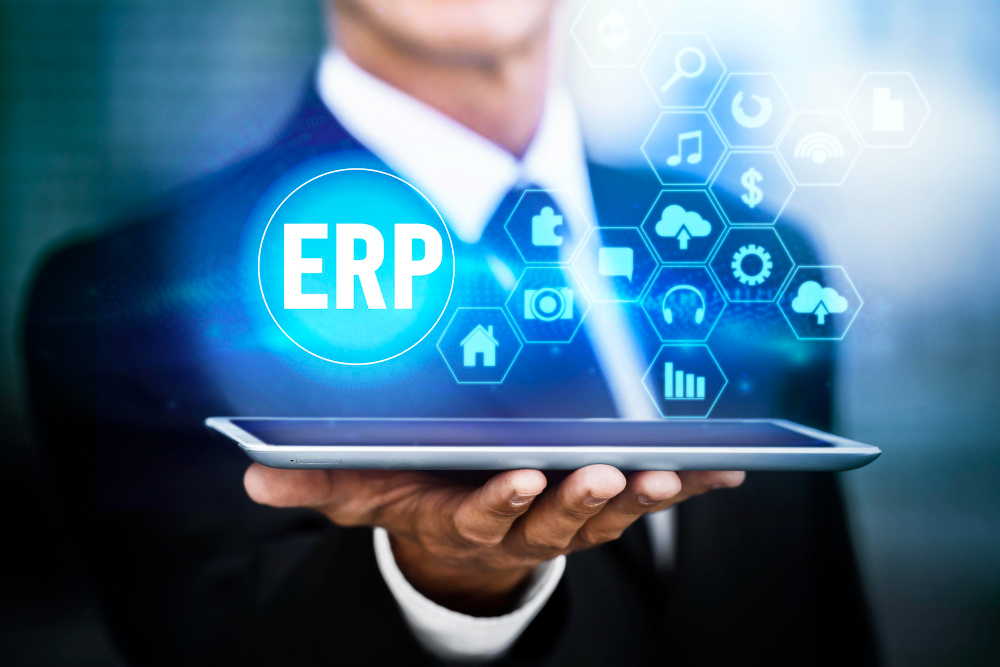In the fast-paced world of real estate, businesses face numerous challenges ranging from property management and client relationships to financial oversight and operational efficiency. Technology plays a crucial role in streamlining these processes, and two of the most prominent solutions are Enterprise Resource Planning (ERP) and Customer Relationship Management (CRM) systems. While both systems offer significant benefits, the choice between ERP vs CRM depends largely on your business needs. In this blog, we’ll delve into the differences between ERP and CRM, their unique benefits, and how they can be applied to real estate operations and transactions.
What is ERP
Enterprise Resource Planning (ERP) software is a comprehensive solution designed to integrate and manage core business processes such as accounting, inventory, human resources, procurement, and project management. ERP systems provide a centralized platform that ensures seamless data flow across departments, enhancing efficiency and transparency.
Key Features of ERP in Real Estate:
Financial Management: Track revenue, expenses, and budgets with real-time financial reporting.
Project Management: Manage construction projects, timelines, and resource allocation.
Property Management: Oversee leasing, maintenance, and compliance across multiple properties.
Inventory Management: Monitor materials, supplies, and equipment for real estate projects.
Document Control: Centralize contracts, blueprints, and other critical documents.
Benefits of ERP for Real Estate:
Streamlined Operations: Integrates multiple business processes into one system.
Accurate Financial Reporting: Enhances transparency and ensures regulatory compliance.
Scalability: Easily adapts to growing business needs.
Data-Driven Insights: Provides a holistic view of business performance through advanced analytics.
What is CRM?
Customer Relationship Management (CRM) software focuses on managing customer interactions, sales processes, and marketing activities. CRM systems help businesses build and maintain strong relationships with their clients by tracking leads, managing communication, and providing insights into customer behavior.
Key Features of CRM in Real Estate
Lead Management: Track and nurture potential clients throughout the sales funnel.
Client Communication: Centralize email, phone calls, and meeting records.
Marketing Automation: Create and track targeted marketing campaigns.
Sales Tracking: Monitor sales performance and forecast revenue.
Customer Insights: Gain a deeper understanding of client preferences and needs.
Benefits of CRM for Real Estate
- Enhanced Customer Engagement: Provides personalized communication and services.
- Improved Lead Conversion: Automates follow-ups and ensures no opportunities are missed.
- Sales Productivity: Streamlines the sales process for faster deal closures.
- Analytics and Reporting: Tracks key metrics to optimize sales strategies.
ERP vs CRM: Key Differences
While ERP and CRM systems both aim to improve efficiency and profitability, their core focus areas differ:
Aspect
ERP
CRM
| Primary Focus |
| Internal business processes |
| Customer relationships and sales |
| Core Functionality |
| Finance, operations, inventory, HR |
| Lead management, sales, marketing |
| User Base |
| Finance, operations, project managers |
| Sales, marketing, customer support |
Data Scope
| Broad and company-wide |
| Customer-centric |
Which Software is Better for Real Estate?
The decision to implement ERP or CRM software depends on your business priorities and challenges. Let’s explore scenarios where each solution excels:
When to Choose ERP:
You manage large-scale real estate projects that require robust financial tracking.
Your operations involve multiple properties or construction sites.
You need to integrate diverse departments like finance, HR, and procurement.
Compliance and regulatory reporting are critical to your operations.
When to Choose CRM:
Your primary focus is on acquiring and retaining clients.
You’re looking to enhance lead generation and sales processes.
Personalized communication is a key driver for your business.
You’re scaling your marketing efforts to attract more clients.
Can You Use Both ERP and CRM?
Yes, and in many cases, combining ERP and CRM systems can deliver the best of both worlds. Integration allows you to:
Align customer relationship data with financial and operational insights.
Provide sales teams with a clearer understanding of inventory or project timelines.
Improve decision-making with unified data across all departments.
For example, a real estate company might use CRM to manage leads and marketing campaigns while leveraging ERP for project management and financial tracking. Seamless integration ensures that data flows smoothly between systems, eliminating silos and improving overall efficiency.
Final Thoughts
Both ERP and CRM systems have distinct roles to play in the real estate industry. If your priority is operational efficiency and financial management, an ERP system is likely the better choice. On the other hand, if your focus is on customer acquisition and retention, a CRM system will provide the tools you need.
Ultimately, the right solution may depend on the size of your business, your specific challenges, and your growth objectives. For many real estate companies, the ideal setup involves a combination of both ERP and CRM systems, ensuring comprehensive support for all aspects of their operations.
Looking to implement ERP, CRM, or both for your real estate business? Contact Metaphor today to explore tailored solutions that meet your unique needs.




